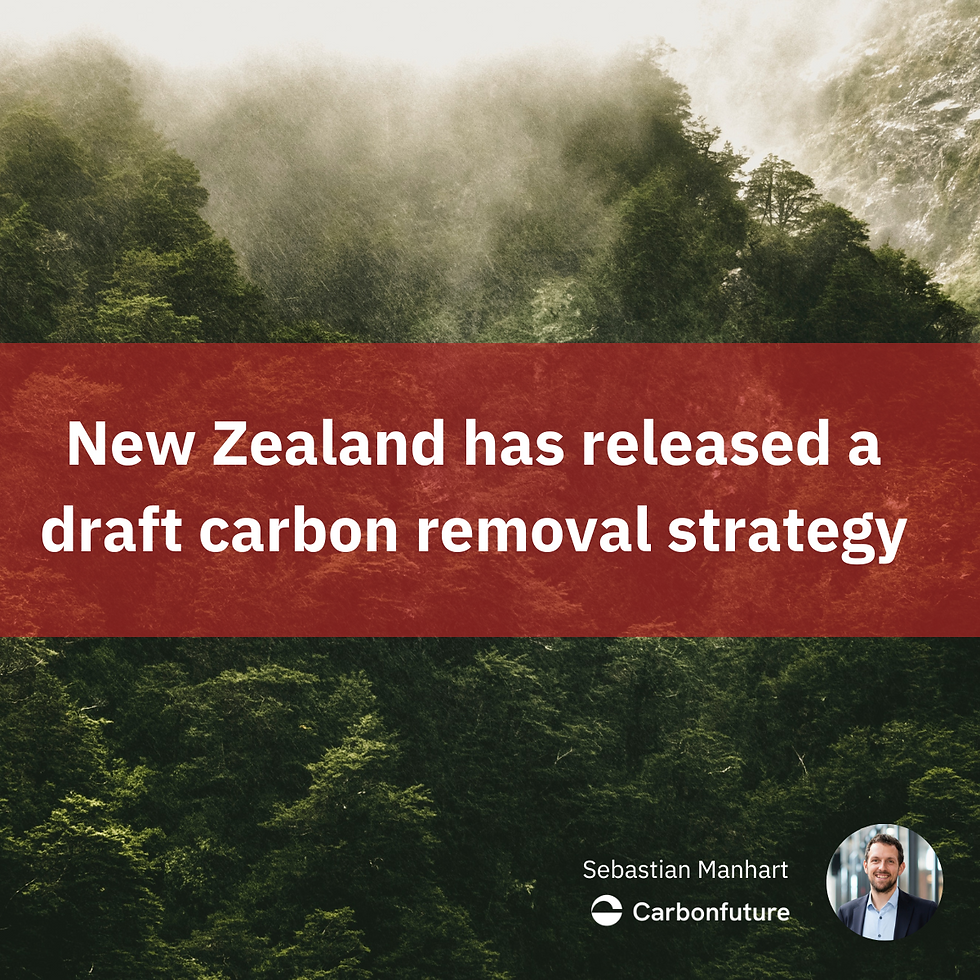🇳🇿New Zealand has released a draft carbon removal strategy 🇳🇿
- sebmanhart

- Sep 11, 2023
- 2 min read
Updated: Aug 22, 2024

New Zealand is the latest country to release more information about its strategy for carbon dioxide removal (#CDR). New Zealand has so far lagged behind other countries in its approach to legislating for CDR, but these publications suggest that change is starting to happen in the Cabinet.
What is the state of climate policy in New Zealand?
🌲 The current legislation governing emissions, the 2002 Climate Change Response Act, limits carbon removal activities to carbon sequestration through forestry.
🎯 The second Emissions Reduction Plan for 2026-2030, which the Carbon Removals Strategy will become part of, focuses on gross emission reductions alongside strategies for net emission reductions.
What will the Carbon Removals Strategy include?
📉 Removals will be positioned as complementary to deep, economy-wide efforts to reduce greenhouse gas emissions.
🔎 A priority for the Strategy will be to provide a clear route to market for CDR activities which are near-ready for scaled deployment. The Ministers aim to develop processes to set clear expectations for research and evidence needed for market entry to provide certainty for investors.
🤝 More carbon removal activities could become recognised in the New Zealand Emissions Trading Scheme (NZ ETS), pending the outcomes of the NZ ETS review.
🙌 Removals must achieve high standards for sequestration and delivery of environmental, social and economic co-benefits.
A draft Strategy is going to be submitted to the Cabinet by December this year, followed by public consultation at the start of 2024. I look forward to seeing the development of policy mechanisms to incentivise carbon removals in New Zealand.
Great to see a country taking the lead and working proactively on CDR policy.
📢 Who are the companies, organisations and individuals leading the way in CDR in New Zealand? Let me know in the comments.
.png)



Comments